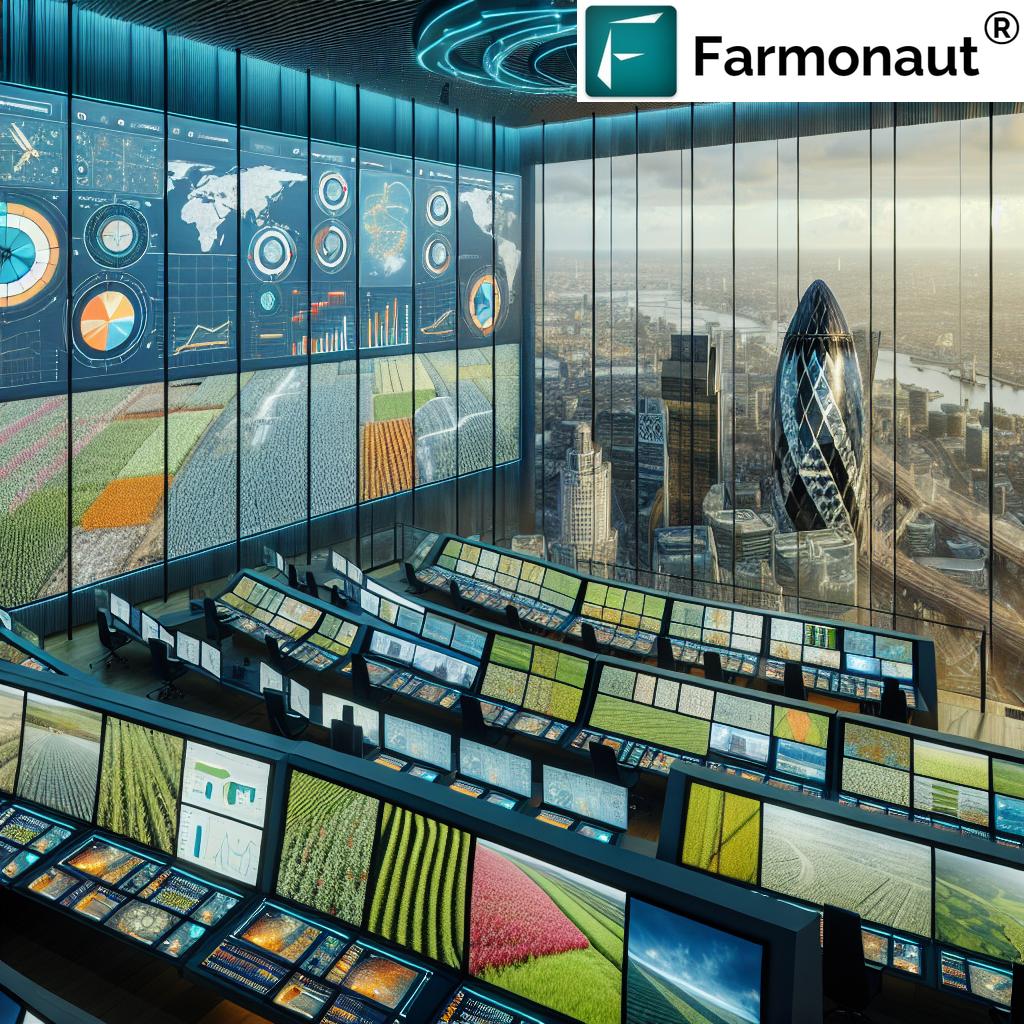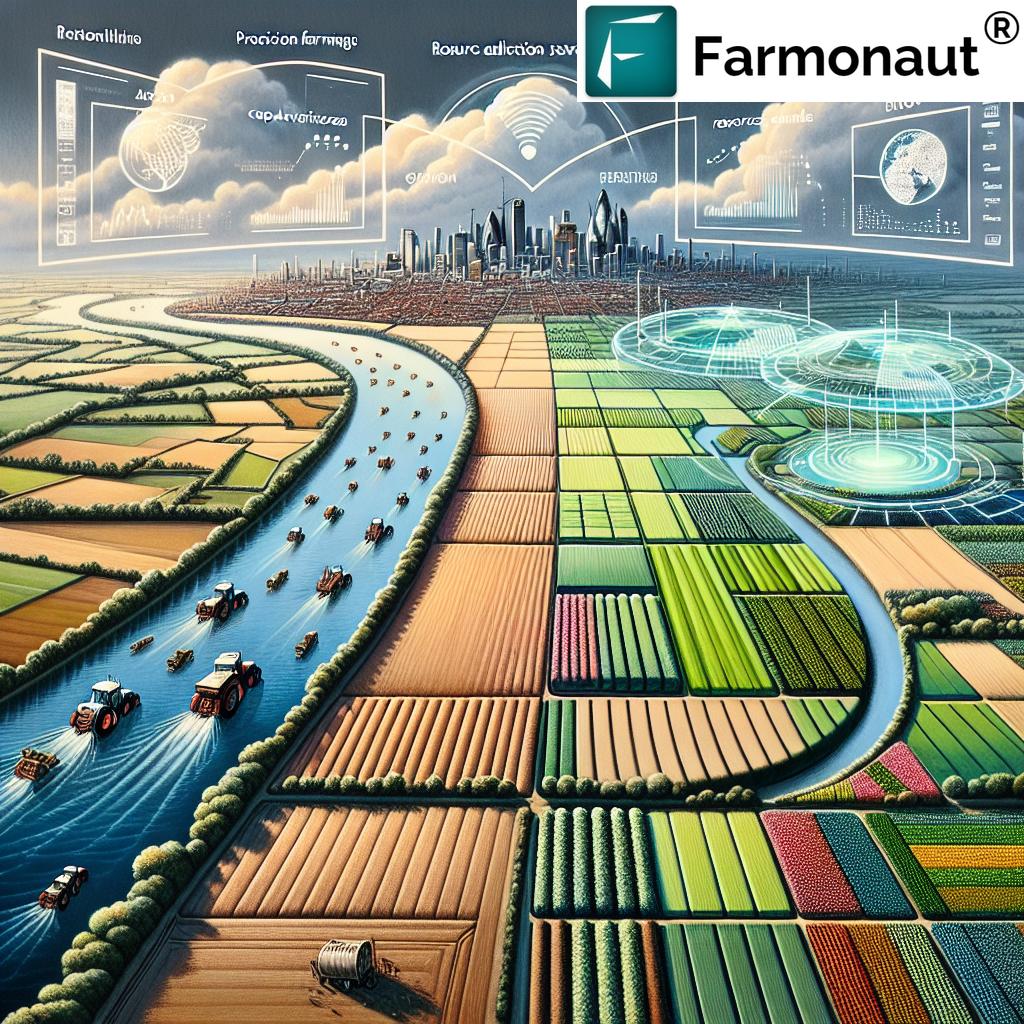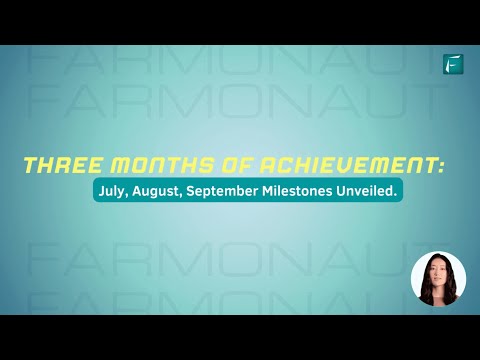Revolutionizing London’s Agriculture: How Precision Farming Technology is Transforming Crop Monitoring and Yield Optimization
“Precision agriculture technology can increase crop yields by up to 30% while reducing water usage by 50%.”
In the heart of the United Kingdom, London’s agricultural sector is undergoing a remarkable transformation. As we delve into the world of precision farming technology, we’ll explore how these innovations are reshaping the landscape of crop monitoring and yield optimization in the bustling metropolis and its surrounding areas. The integration of smart farming solutions and agricultural data analytics is not just a trend; it’s a revolution that’s changing the face of farming as we know it.

The Rise of Precision Agriculture in London
London, a city known for its financial markets and bustling streets, is now becoming a hub for agricultural innovation. The adoption of precision agriculture technology is transforming the way farmers in and around the city approach their craft. This shift is not just about implementing new tools; it’s about embracing a new philosophy of farming that prioritizes efficiency, sustainability, and data-driven decision-making.
At the forefront of this agricultural revolution is Farmonaut, a company that has been instrumental in bringing cutting-edge farm management software to the region. Their platform integrates remote sensing technology with advanced analytics to provide farmers with unprecedented insights into their operations.
Crop Monitoring Systems: The Eyes in the Sky
One of the most significant advancements in precision farming is the development of sophisticated crop monitoring systems. These systems utilize satellite imagery and drone technology to provide a bird’s-eye view of farm operations. In London’s diverse agricultural landscape, from urban rooftop gardens to expansive rural fields, these monitoring systems are proving invaluable.
- Real-time vegetation health analysis
- Early detection of pest infestations and diseases
- Precise mapping of soil moisture levels
- Identification of nutrient deficiencies
By leveraging these technologies, London’s farmers can respond swiftly to potential issues, optimizing their crop management strategies and reducing the risk of yield loss.
Agricultural Data Analytics: Turning Information into Action
The true power of precision farming lies in its ability to collect and analyze vast amounts of data. Agricultural data analytics platforms are becoming the brains behind smart farming operations in London. These systems process information from various sources, including:
- Satellite and drone imagery
- Weather stations
- Soil sensors
- Historical yield data
By synthesizing this data, farmers can make informed decisions about planting times, irrigation schedules, and fertilizer applications. This level of precision allows for the optimization of resources and maximization of yields, a crucial factor in the competitive agricultural market of London and the surrounding regions.
Smart Farming Solutions: Automation and IoT
The Internet of Things (IoT) has found a fertile ground in London’s agriculture sector. Smart farming solutions are automating many aspects of farm management, from irrigation systems to robotic harvesters. These technologies are particularly beneficial in the city’s urban farming initiatives, where space is at a premium and efficiency is paramount.
Farmonaut’s platform integrates seamlessly with various IoT devices, allowing farmers to:
- Control irrigation systems remotely
- Monitor greenhouse conditions in real-time
- Track livestock movement and health
- Manage energy consumption in farm buildings
This level of automation not only increases efficiency but also allows farmers to focus on strategic decision-making rather than routine tasks.
Sustainable Agriculture Practices: A Green Revolution
As London continues to prioritize sustainability, precision farming technologies are playing a crucial role in promoting environmentally friendly agricultural practices. By optimizing resource use, these technologies help reduce the environmental impact of farming while maintaining or even increasing productivity.
- Reduced water usage through precision irrigation
- Minimized chemical applications with targeted pest management
- Decreased soil erosion through data-driven land management
- Lower carbon footprint with optimized machinery use
These sustainable practices not only benefit the environment but also contribute to the long-term viability of London’s agricultural sector.
“Farmonaut’s farm management software analyzes over 1 million acres of farmland data daily for optimized decision-making.”
Farm Management Software: The Digital Hub of Modern Agriculture
At the core of precision farming in London is advanced farm management software. These digital platforms serve as centralized hubs for all farm-related data and operations. Farmonaut’s solution, for instance, provides a comprehensive suite of tools that allow farmers to:
- Plan crop rotations and field allocations
- Track expenses and revenue
- Manage inventory of seeds, fertilizers, and pesticides
- Generate reports for compliance and decision-making
By centralizing all aspects of farm management, these software solutions enable farmers to make data-driven decisions quickly and effectively.

Agricultural Yield Optimization: Maximizing Returns
The ultimate goal of precision farming is to optimize agricultural yields. In London’s competitive market, even small improvements in yield can have significant economic impacts. Precision farming technologies contribute to yield optimization through:
- Variable rate application of inputs
- Optimal planting and harvesting schedules
- Precise crop health monitoring and intervention
- Data-driven crop variety selection
By fine-tuning every aspect of crop production, London’s farmers are seeing substantial increases in their yields and, consequently, their profitability.
Remote Sensing in Agriculture: Beyond the Visible Spectrum
Remote sensing technology has revolutionized the way we monitor and manage crops. In London’s agricultural sector, this technology is being used to gather data that was previously impossible or impractical to collect. Remote sensing offers:
- Multispectral and hyperspectral imaging for detailed crop analysis
- Thermal imaging for water stress detection
- LIDAR technology for precise terrain mapping
- Satellite-based monitoring for large-scale observations
These advanced sensing capabilities provide farmers with a wealth of information, enabling them to make precise adjustments to their farming practices.
Agtech Investment Opportunities: The Growing Market
The rapid advancement of precision farming technologies has created a burgeoning market for agtech investments in London. Investors are increasingly recognizing the potential of these innovations to transform agriculture and generate significant returns. Key areas of investment include:
- AI and machine learning algorithms for predictive analytics
- Robotics and automation for farm operations
- Blockchain technology for supply chain transparency
- Vertical farming solutions for urban agriculture
As London positions itself as a hub for agricultural innovation, the opportunities for investors in this space are expanding rapidly.
Digital Farming Innovations: The Future of Agriculture
The digital transformation of farming is ongoing, with new innovations constantly emerging. In London, we’re seeing the adoption of cutting-edge technologies that are pushing the boundaries of what’s possible in agriculture:
- Gene editing for crop resilience and yield improvement
- AI-powered predictive maintenance for farm equipment
- Augmented reality for training and field operations
- Precision fermentation for alternative protein production
These digital farming innovations are not just improving current practices; they’re redefining the very nature of agriculture in the 21st century.
The Impact of Precision Farming on London’s Agricultural Landscape
To better understand the transformative effect of precision farming technologies on London’s agriculture, let’s examine a comparative table highlighting the differences between traditional farming methods and precision farming approaches:
| Metric | Traditional Farming | Precision Farming with Farmonaut |
|---|---|---|
| Crop Yield | Baseline | Estimated 20-30% increase |
| Water Usage | Baseline | Estimated 30-50% reduction |
| Fertilizer Efficiency | Baseline | Estimated 15-25% improvement |
| Pest Management Accuracy | Baseline | Estimated 40-60% increase |
| Overall Farm Profitability | Baseline | Estimated 15-35% increase |
This table clearly illustrates the significant advantages that precision farming technologies, particularly those offered by Farmonaut, bring to London’s agricultural sector. The improvements in efficiency, sustainability, and profitability are driving the widespread adoption of these innovative solutions.
Challenges and Opportunities in Implementing Precision Farming
While the benefits of precision farming are clear, the implementation of these technologies in London’s agricultural sector is not without challenges. Some of the key hurdles include:
- Initial investment costs for technology adoption
- Training and education for farmers and agricultural workers
- Data privacy and security concerns
- Integration with existing farm equipment and practices
However, these challenges also present opportunities for innovation and growth. Companies like Farmonaut are addressing these issues by:
- Offering flexible pricing models and subscription-based services
- Providing comprehensive training and support programs
- Implementing robust data protection measures
- Developing solutions that integrate seamlessly with existing infrastructure
By overcoming these challenges, London’s agricultural sector is poised for a new era of efficiency and sustainability.
The Role of Government and Policy in Advancing Precision Agriculture
The success of precision farming in London is not solely dependent on technological advancements and farmer adoption. Government policies and support play a crucial role in creating an environment conducive to agricultural innovation. Key policy areas include:
- Research and development funding for agtech initiatives
- Tax incentives for farmers adopting precision farming technologies
- Regulatory frameworks that facilitate data sharing and technology integration
- Educational programs to build a skilled workforce for the future of agriculture
By aligning policies with the needs of the agricultural sector, London’s government can accelerate the adoption of precision farming technologies and solidify the city’s position as a leader in agricultural innovation.
The Future of Farming: London’s Agricultural Revolution
As we look to the future, it’s clear that precision farming technologies will continue to play an increasingly important role in London’s agricultural sector. The integration of AI, IoT, and advanced data analytics will lead to even more sophisticated farming systems. We can expect to see:
- Fully autonomous farm operations
- Predictive analytics that anticipate market demands and environmental changes
- Seamless integration of urban and rural farming systems
- Advanced biotechnology for crop and livestock improvement
These advancements will not only increase productivity and sustainability but also attract a new generation of tech-savvy farmers to the industry.
Conclusion: Embracing the Precision Farming Revolution
The transformation of London’s agricultural sector through precision farming technologies is nothing short of revolutionary. From advanced crop monitoring systems to sophisticated farm management software, these innovations are reshaping the way we approach food production in the 21st century. Companies like Farmonaut are at the forefront of this revolution, providing farmers with the tools they need to optimize yields, reduce environmental impact, and increase profitability.
As we continue to face global challenges such as climate change, population growth, and resource scarcity, the importance of precision farming will only grow. London’s agricultural sector is well-positioned to lead the way in this new era of farming, demonstrating how technology and tradition can come together to create a more sustainable and productive future for agriculture.
For those looking to be part of this agricultural revolution, whether as farmers, investors, or innovators, the time to act is now. The seeds of change have been planted, and the harvest promises to be bountiful for those who embrace the power of precision farming technologies.
FAQ Section
Q: What is precision farming technology?
A: Precision farming technology refers to the use of advanced tools and data analytics to optimize agricultural processes. It includes satellite imagery, IoT sensors, AI-driven analytics, and automated farm management systems to improve crop yields, reduce resource usage, and increase overall farm efficiency.
Q: How does precision farming benefit London’s agricultural sector?
A: Precision farming benefits London’s agriculture by increasing crop yields, reducing water and fertilizer usage, improving pest management, and enhancing overall farm profitability. It also promotes sustainable practices and helps farmers make data-driven decisions.
Q: What role does Farmonaut play in London’s precision farming landscape?
A: Farmonaut provides advanced farm management software that integrates satellite imagery, AI analytics, and IoT technologies. Their platform offers real-time crop monitoring, predictive analytics, and resource management tools, helping London’s farmers optimize their operations and increase productivity.
Q: Are there any challenges in implementing precision farming technologies?
A: Yes, challenges include initial investment costs, the need for farmer training, data privacy concerns, and integration with existing farm equipment. However, these challenges are being addressed through flexible pricing models, comprehensive support programs, and continuous technological improvements.
Q: How can investors participate in the agtech revolution in London?
A: Investors can participate by funding startups developing innovative agricultural technologies, investing in established agtech companies, or supporting research and development initiatives in areas such as AI, robotics, and biotechnology for agriculture.
To learn more about how you can leverage precision farming technologies for your agricultural operations, visit Farmonaut’s web application or explore their API services. For developers interested in integrating Farmonaut’s technology into their own solutions, check out the API Developer Docs.
Download the Farmonaut app to start optimizing your farm today:
Join the precision farming revolution and take your agricultural operations to the next level with Farmonaut’s cutting-edge solutions.





